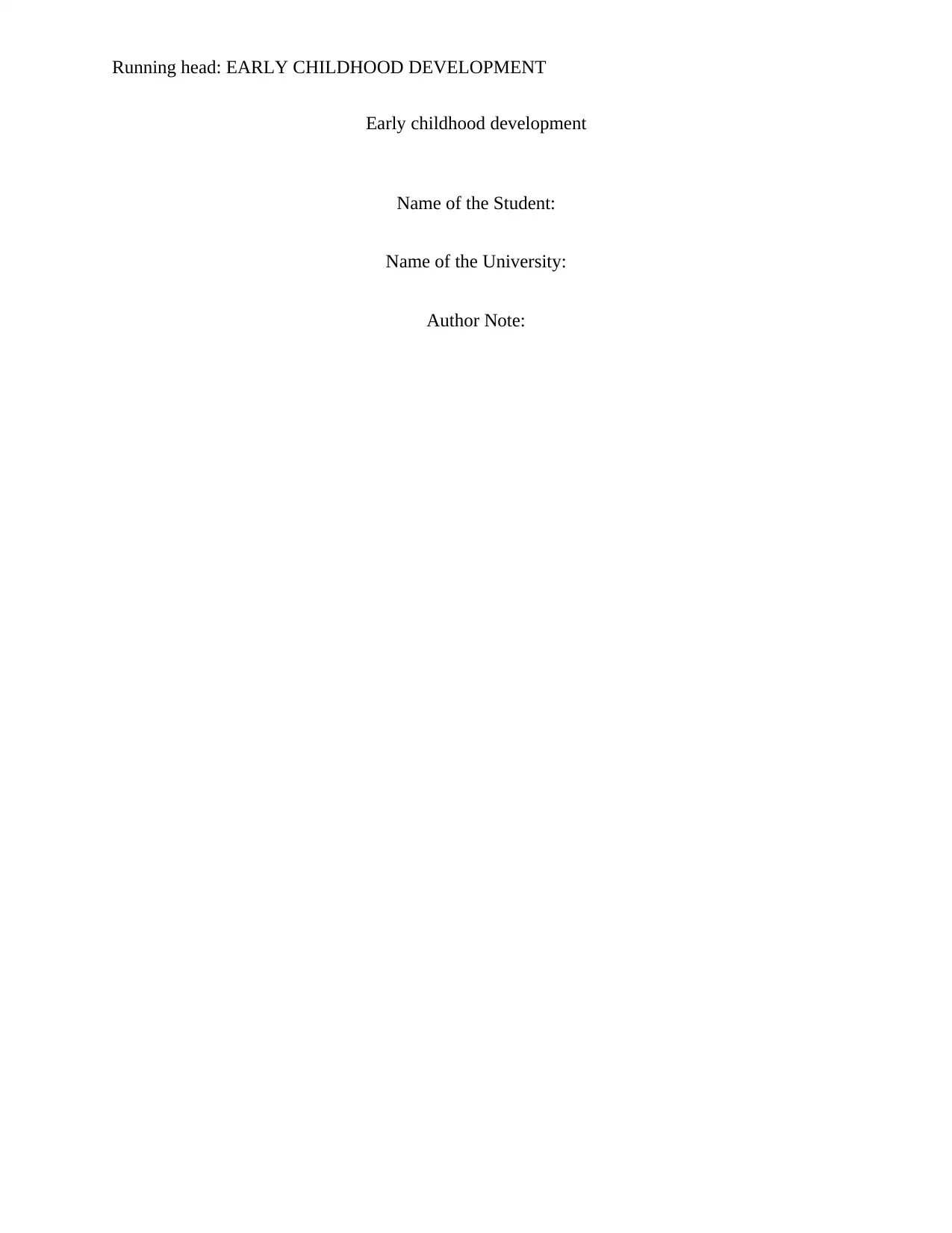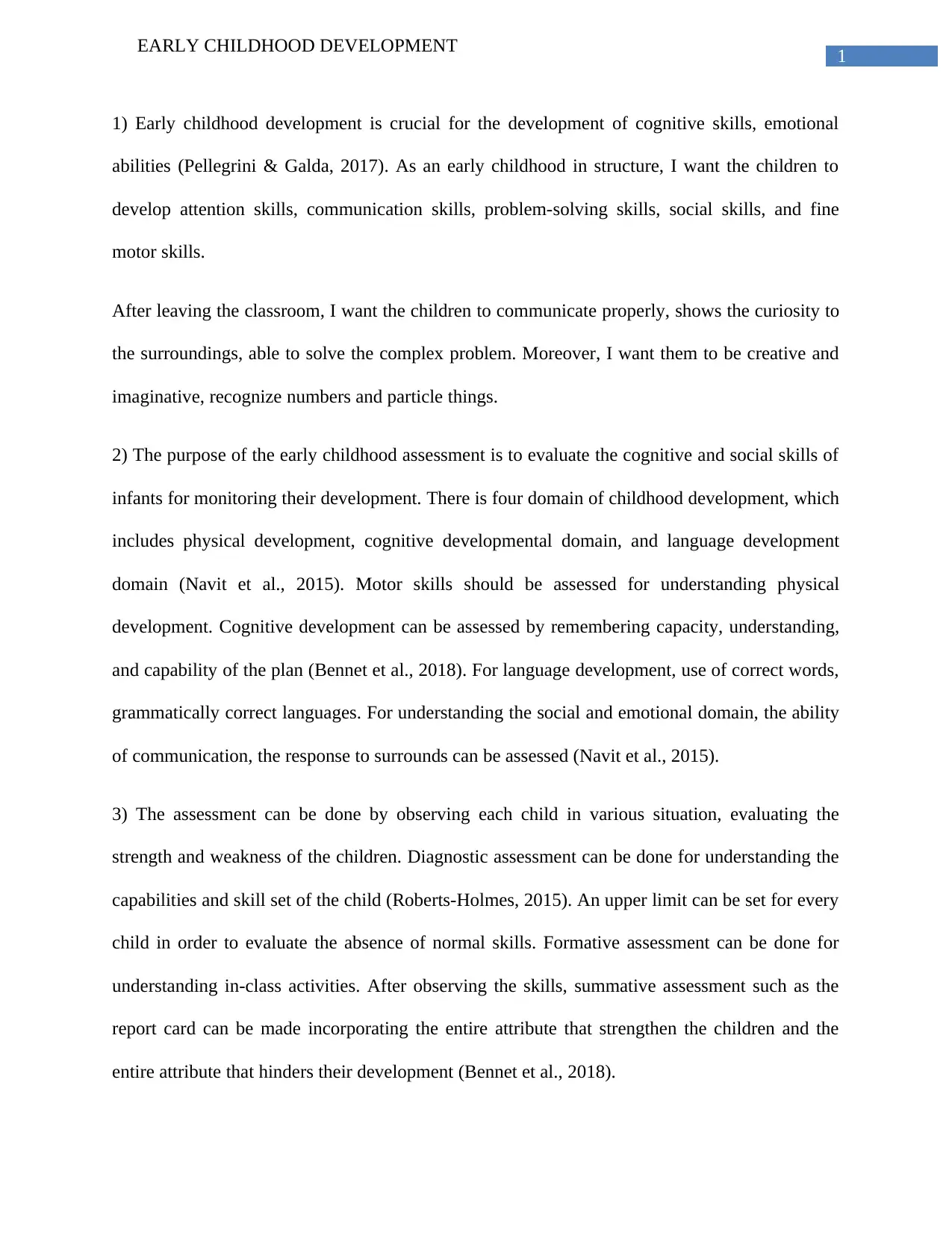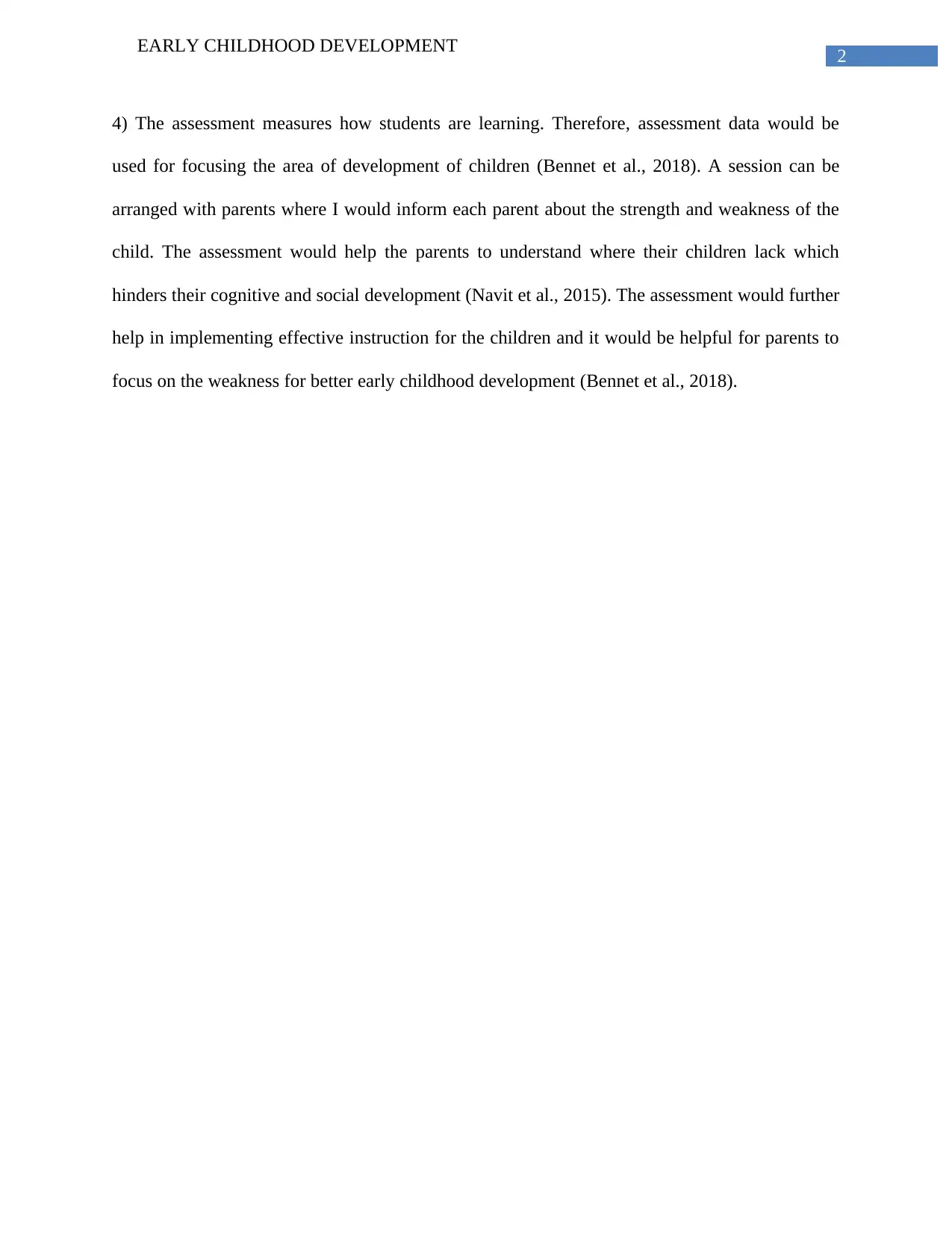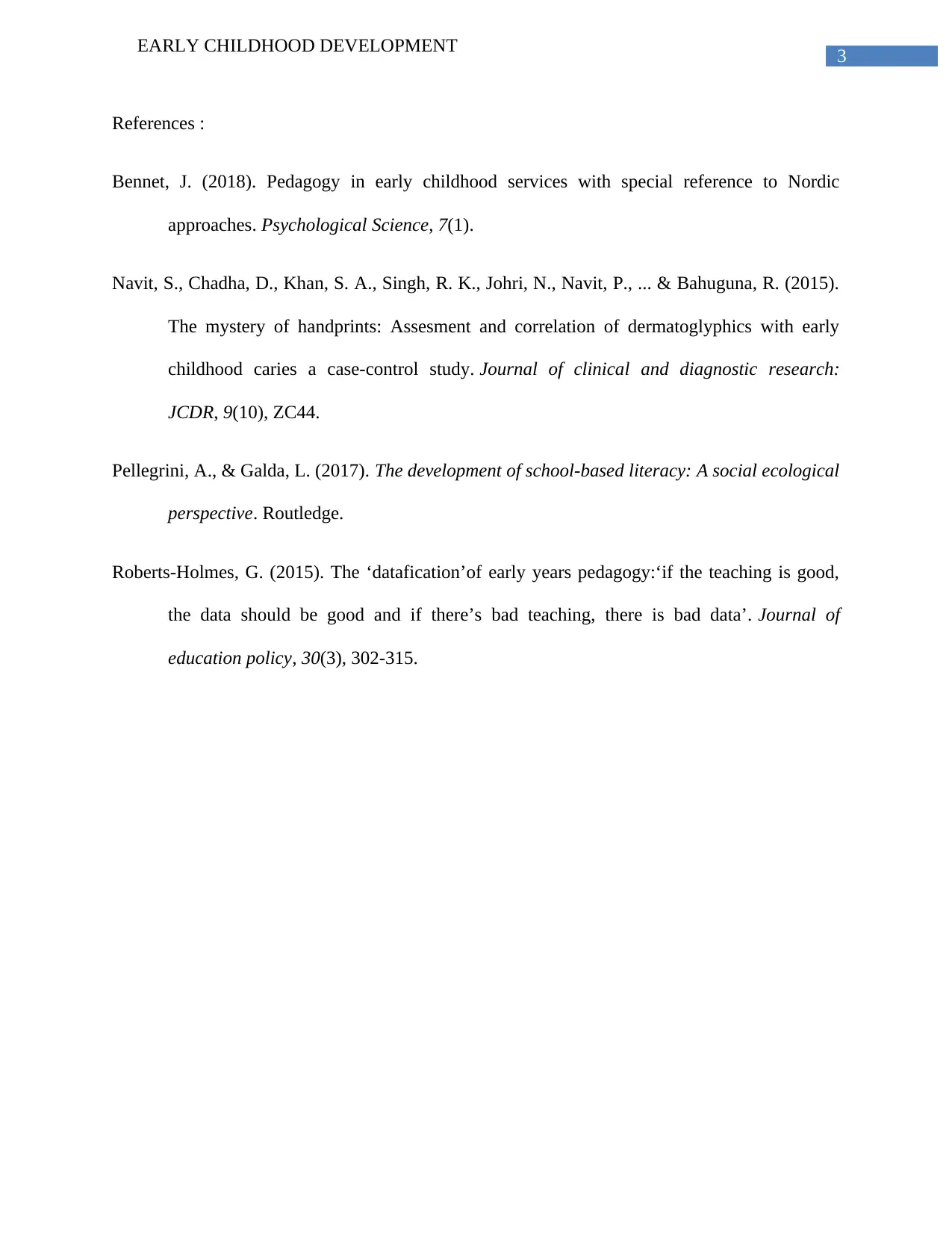Early Childhood Development: Assessing Cognitive and Social Abilities
VerifiedAdded on 2023/06/03
|4
|670
|116
Essay
AI Summary
This essay delves into the critical aspects of early childhood development, emphasizing the significance of cognitive and social skill assessment. The author, an aspiring early childhood educator, outlines the desired outcomes for children, including the development of attention, communication, problem-solving, and fine motor skills. The essay details the purpose of assessment in evaluating these skills, covering physical, cognitive, language, and social-emotional domains. It explores various assessment methods, such as observation, diagnostic assessments, and formative and summative evaluations, highlighting how data is used to focus on areas of development and inform parents. The author stresses the importance of parental involvement and effective instruction based on assessment results, ultimately promoting a holistic approach to early childhood development. The essay is supported by cited references, providing a comprehensive overview of the subject.
1 out of 4











![[object Object]](/_next/static/media/star-bottom.7253800d.svg)